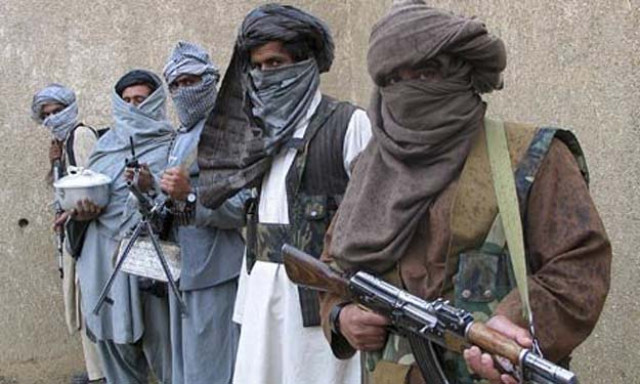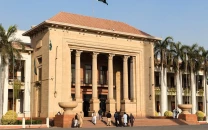Solution to Afghanistan’s predicament appears nowhere in sight
Afghan defence experts say Taliban have stepped up attacks after peace talks failed

Earlier some Taliban leaders had hinted at a possible change in their policy to shift focus to political negotiations instead of war in view of growing casualties of Afghans, but there is no change. PHOTO: REUTERS
Taliban bombers struck vehicles of defence officials on September 5, killing and injuring dozens of security personnel. The incident triggered a wave off criticism against the government and security agencies for failing to counter serious threats to the security of the capital city. Hours after the blasts, a group of Taliban gunmen entered a building of a security agency and was involved in clashes with the security forces. Besides the deadly attacks, militant forces are presently giving a tough time to the US-backed Afghan security forces in southern, eastern and northern parts of the country.
14 dead in TTP-Afghan Taliban clash
On Thursday, hundreds of Taliban launched a major attack in Tarin Kot, in Uruzgan province, in an attempt to deter the latest advance against a major city.
The Afghan government deployed reinforcements to stop the advance on Tarin Kot. Commander Abdul Razaq, police chief of Kandahar province, has now joined troops to resist the militant onslaught on the provincial capital city, according to Interior Ministry Spokesperson Sediq Seddiqi.
They have intensified attacks as the curtain call for the ‘spring offensive’ is close as winter approaches. With latest offensives, the Taliban want to keep some areas under their control in the mountainous terrain in winter to live there for a long time. It is believed that it has become difficult for the government to easily take the areas back from them.
Afghan defence experts are of the view the Taliban have stepped up their attacks after the failure of the efforts for the peace process. Shahnawaz Tanai, former defence minister, says Taliban still consider their war ‘sacred’ as they insist foreign forces are still stationed in Afghanistan.
US carries out first Taliban strikes under new rules
“Taliban use war as a political tool as they refused to join the peace talks and efforts by several countries did not produce results. There is also a huge gap between Kabul and the Taliban and the Taliban prefer war than talks,” Tanai told The Express Tribune from Kabul on the phone on Friday. “Another point is the people, in fact, do not accept the ideology of the Taliban who are trying to enforce their thinking by force,” Tanai added.
As Taliban increase their pressure, Afghan political analysts believe the Taliban have taken advantage of the ongoing political tensions between President Ashraf Ghani and Chief Executive Dr Abdullah Abdullah. Both leaders, struggling to grab more powers, have held a series of meetings in recent weeks to settle disputes, however, no official announcement has yet been made about the decision.
Najam Burhani, an Afghan writer and analyst, argues the polarisation between the president and the chief executive has a negative impact on the performance of the security forces.
The commander of US and Nato forces in Afghanistan says more than 900 Afghan security personnel died while battling Taliban insurgents in July alone. General John Nicholson of Nato’s Resolute Support mission made the revelation during a year in which Taliban fighters have made territorial advances, fighting Afghan forces in more than half the country’s provinces, according to the Voice of America.
Earlier some Taliban leaders had hinted at a possible change in their policy to shift focus to political negotiations instead of war in view of growing casualties of Afghans, but there is no change.
The Afghan government could not be absolved of its failure in chalking out a strategy to end the armed conflict in spite of election pledges by President Ghani and Dr Abdullah. The US, which has a key role in solving the problem, is in no mood to find a political solution despite Taliban’s willingness to sit with the Americans and discuss exit plan of the invading troops.
Published in The Express Tribune, September 10th, 2016.



















COMMENTS
Comments are moderated and generally will be posted if they are on-topic and not abusive.
For more information, please see our Comments FAQ